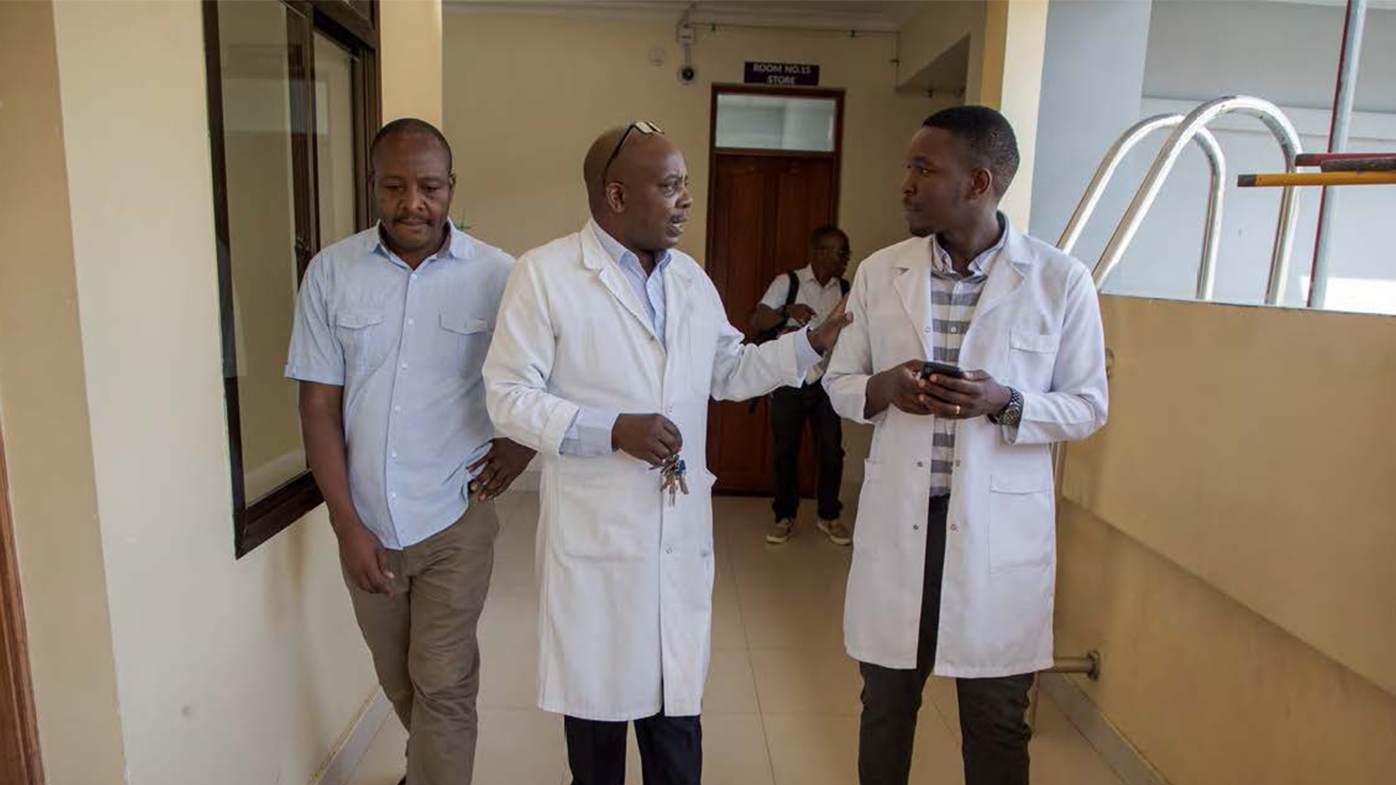Transforming cancer care in LMICs: A collaborative approach to health equity
More than two in three people who die from cancer live in low- and middle-income countries (LMICs). Globally, the incidence of cancer is expected to rise disproportionally in LMICs over the coming decades, with people living in these countries much less likely to receive screenings, diagnosis and treatment than those in higher-income countries.
Populations in LMICs have surged in recent decades but health services have not kept up. In 2019, more than 90% of higher-income countries reported that comprehensive treatment services for cancer were available in the public health system compared to less than 15% in LMICs. Countries without proper healthcare infrastructure, skilled professionals, cancer control programs and enough funding fail to effectively fight cancer. This causes major inequalities in care for cancer and other non-communicable diseases. LMICs bear a larger burden of cancer mortality than higher-income countries. It is vital that we work to close the gap.
World Cancer Congress
In Geneva this week, I was privileged to moderate a panel at the World Cancer Congress, organized by the Union for International Cancer Control (UICC), which explored how technology can improve cancer care in LMICs, including through education and training. The panelists came from Project ECHO, The Max Foundation, ecancer and the Access to Oncology Medicines (ATOM) Coalition which is led by the UICC. Bristol Myers Squibb supports programs run by these independent organizations to improve health outcomes in LMICs.
Closing gaps in cancer care in LMICs requires policy, structural and financial interventions. Above all, it requires political leadership alongside collaboration. We know that technology can shape the future of global health. The challenge is to spread technology more evenly to more of the world’s population faster. Digitalization, a staple of many global health systems, can help to bring care closer to patients, improve how health systems operate and spur innovation in medicines. Integrating technology into routine care could supercharge the delivery of cancer services in LMICs.
This vision is often checked by reality on the ground. For many LMICs, internet connectivity is patchy. The data that informs decision-making for cancer management in higher-income countries is often not applicable in LMICs or it needs to be varied to reflect the context. Just one in five LMICs have the data needed to drive cancer policy. Governance, interoperability and funding for digital health infrastructure can be poor. All this makes it harder to integrate digital services into health systems. LMICs and higher-income countries face very different challenges in cancer care so an open mindset is needed to find solutions.
Governance, interoperability and funding for digital health infrastructure can be poor. All this makes it harder to integrate digital services into health systems.
Supporting access and training
So, how is Bristol Myers Squibb helping?
We hope that patients, no matter where they live or their ability to pay, can benefit from our science.
We do that by supporting medical education and training, implementing medicines access strategies that can help to build health capacity, services and infrastructure in LMICs, and improving the sustainability of patients’ access to high-quality healthcare. By providing education and resources, we can equip clinicians and health systems in LMICs to devise and deliver effective treatment plans and enable better access to the latest cancer medicines.
Earlier this year, we launched ASPIRE, a 10-year strategy to improve access to our innovative medicines in LMICs. By 2033, our goal is to reach more than 208,000 patients in LMICs with our medicines, including immunotherapies for cancer .
Supporting non-profit organizations
Through unrestricted grants, Bristol Myers Squibb has supported independent non-profit organizations that have delivered region-appropriate oncology and hematology training and education for healthcare professionals and patients in LMICs through the optimization of technology.
ecancer is an example of a non-profit organization that was supported through Bristol Myers Squibb’s health equity grants. ecancer has developed e-learning modules, educational and training videos in collaboration with experts, trained more than 6,000 multidisciplinary healthcare professionals and generated almost 80,000 views of the training materials.
Bristol Myers Squibb grant funding for the ATOM Coalition is helping to expand access to immuno-oncology treatments in LMICs. ATOM is organizing safe, scalable and sustainable access in Pakistan, Rwanda and Zambia. ATOM is identifying pathways for expanded access to cancer medicines in more LMICs by 2026 .
Bristol Myers Squibb is supporting Project ECHO India’s capacity-building and training work for patients with beta thalassemia, a serious blood disorder. Technology is helping to deliver an eight-module curriculum and guided practice sessions to hundreds of doctors and other healthcare professionals so that they can better tackle the disease.
Working together
The panel at the World Cancer Congress underlined the importance of collaboration. Bristol Myers Squibb is honored to support the work of healthcare organizations that are making a meaningful difference for patients in LMICs. We heard about the key role of technology across the cancer care pathway. We learned about the deep impact of focused and collaborative action. We were reminded that independent medical education and health system capacity are vital for better health outcomes, including for cancer, in LMICs.
Universal health coverage, which aims to ensure that everyone can access quality health services without facing financial hardship, is still a long way from realization. Inequalities in care, including in cancer care, continue to slow progress. But care gaps can be closed. Bristol Myers Squibb, along with others, will continue to build on our track record in health equity, enabling access to more of our innovations for more people.

Author: Estelle Vester-Blokland
SVP, Head of International Medical Affairs
Subscribe to Our stories alerts
Beyond just relevant information about Bristol Myers Squibb's therapeutic areas and innovation, Our stories offer a window into the work our employees do every day for patients.
About Bristol Myers Squibb
Bristol Myers Squibb is a global biopharmaceutical company whose mission is to discover, develop and deliver innovative medicines that help patients prevail over serious diseases. As global citizens, we work sustainably and responsibly to create a positive impact in the communities where we live and work.


